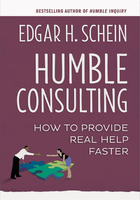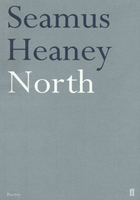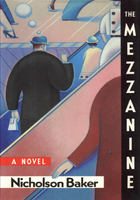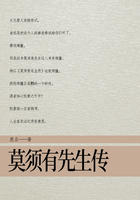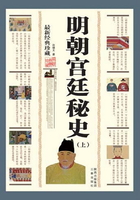In the courtyard down below, Mr Chawla began his morning exercises. Determined to start the day in a purposeful manner, according to schedule and habit, he spat out the last remnants of sleep and inertia in a perfectly aimed rainbow spray of spittle. He stood in a patch of sunlight where the shadows cast by the jamun tree could not reach him. Still, at the spot where the Red Cross crate had landed the night of his son's birth, there was a large gap that marred the tree's otherwise elegant proportions. Mr Chawla bent forwards to touch his toes, then backwards to form a perfect arc, one taut and tight enough to catapult himself into the sky.
'Ommmmm.' He let his voice fly in triumph over the rooftops. 'Ommmmmm,' he roared, teeth gleaming in the morning rays. 'Ommmmm.' He informed the world that he, Mr R. K. Chawla (B.A., Pass), head clerk at the Reserve Bank of Shahkot, was ready for a new day. The air vibrated as if shot through by arrows. He was forty years old, hale and hearty. And if he was balding a little and had a small belly…well, he liked this look; it added importance to his words and inspired respect. He stepped out into the world firm-footed and sure, putting to shame the sorry young men who drooped about the town, ignoring their responsibilities. Slapping his chest and swinging his arms, he jogged up and down around the courtyard.
Later, as he oiled himself with coconut oil in the small bathroom, he shouted from behind the closed door: 'The tooth powder is almost gone. You could buy some more from Diana Stores.' Or: 'Why don't you go and see if Lakshmiji's fever is better?' Or: 'The drain must be unblocked. Don't come complaining to me when we're overtaken by the world's largest cockroach population.'
He hoped to inspire his family to seek out a day as full of promise and activity as his own would be. When he took a bath, he crashed the metal buckets together loudly and poured water over himself in energetic mugfuls, flooding the entire bathroom so that miniature waves sloshed through the gap beneath the door. When he emerged, smooth-cheeked and fresh, redolent with Lifebuoy soap, he stirred the house into such a commotion the family thought they'd need the rest of the day to recover.
His shirt needed to be ironed. His shoes had been discovered dusty, dirty and unpolished. His socks upset him because they gathered in folds about his ankles instead of snapping with the satisfying sound of good elastic to a desirable mid-calf level. Ammaji and Pinky ran up and down trying to carry out his demands.
While trying to coordinate all the various activities needed to solve these problems, Mr Chawla read out bits from the newspaper as was his custom. 'What did I tell you?' he said, delighted. 'Another corrupt politician! Before we are properly out of one international scandal, we are in another. Our politicians are growing careless. They are opening more Swiss bank accounts than they have Gandhi caps to distract us with. Not one truthful politician in the whole country. Yes, our parliament is made of thieves, each one answerable to the prime minister, who is the biggest thief of them all. Look how well he's doing. With each new photograph he is fatter than before.'
Kulfi, though, was not interested. She sat by the window, thinking of the deep-scented, deep-hearted world of peppercorn berries, of cinnamon bark, of the flowerbuds of cloves and cassia, and the saffron stigmas of the crocus. On the walls behind her were traces of the drawings she had made so many years ago, still visible from behind a thin layer of whitewash. By this time, it had been generally acknowledged that she was a little eccentric to say the least. Her hunger during first one pregnancy and then another had settled into a permanent obsession with food. As the years progressed, she grew more peculiar. Ignoring completely the hullabaloo created by her husband, she continued to stare out of the window while her daughter complained about the choice of news items being read aloud.
'Hoo,' said Pinky, flapping her towel in exasperation as she paused on the way to the bathroom. 'What is there to get so excited about? It is always the same old story. Each year the same scandal. Why don't you read something that will affect us? For example, the Cinema Monkey. Is there anything about the Cinema Monkey?'
'What monkey?' asked her father, bewildered.
'See, you are completely out of touch with local issues! For the past month he has been creating havoc outside the cinema, harassing ladies, pulling at their saris until they drop their peanut cones. And all those boys from the university–they are going especially to the cinema, not to see any movies, but just to stand outside and watch the girls getting their clothes pulled off! Haw-ji-haw, I am too scared to go any more.'
Her father snorted.
'Why don't you take Sampath with you?' said Ammaji, trying to find Mr Chawla a good pair of socks while also sipping tea from a saucer. 'He can protect you.'
'Sampath!' said Pinky. 'What good will Sampath be! The monkey will probably choose me as the best person to target if Sampath is with me.'
'That's true,' Ammaji agreed and took another sip of tea. 'He is not very threatening. Poor Sampath,' she said. 'Look at him, sitting, sitting there as usual, with no raise in pay or promotion anywhere in sight.'
Mr Chawla looked over to where his son was slouched over the table, his breakfast a spreading untidiness of crumbs around his plate. Before him a fly, vibrating like a machine, circled lower and lower over the bowl of fruit that had been bought by his wife after much deliberation from the fruit stall. Careful as a pilot, it settled on the ripest plum in the dish. Imagine its delight in finding such a thing indoors; it ran up and down to gauge the size of its discovery, stopping only occasionally to rub its thin black hands together like a greedy businessman. Sampath lifted the ruddy globe of fruit to get a better view of its long-snouted face when, right by his nose, there was a whoosh of movement and Mr Chawla, taking notice of his son's distressing lack of initiative, brought down the rolled-up newspaper–Boom!–hard on the fly, leaving nothing but feeble legs waving above a dirty, jammy mess and a blur of iridescent wing.
'Where is your common sense these days?' said Mr Chawla. 'God only knows what cowdung heaps and garbage dumps these flies come from. Come on. Eat your breakfast.' He sat down at the table opposite him and put aside the paper. 'How is your work going?'
'All right,' mumbled Sampath.
The reply irritated Mr Chawla. 'All right!' he exclaimed, his eyebrows raised. 'All right? You don't sound very certain. If things were going all right, you wouldn't be earning the same salary you were earning last year and the year before that, now would you?'
One by one, all Sampath's classmates had found employment. Even the ones with report cards that were just like his. Report cards with so many red Fs the letter seemed to have multiplied with abandon, run wild by the absence of competition from the rest of the alphabet. Only Sampath had been left idle, spending many blissful hours dreaming in the tea stalls and singing to himself in the public gardens, until at last Mr Chawla had found a suitable job for his son.
'What job?' all the curious and nosy people in Shahkot asked.
To these people, Mr Chawla said, 'He is in government service.'
Government service! People thought of afternoon siestas. Of tea boys running up and down with glasses of steaming milky tea all day long. They thought of free medicines at the dispensary and pensions. Of ration cards and telephones. Of gas connections that could be had so easily. They thought of how this was a country with many festivals and holidays. Of how the government offices closed for each one. They imagined a job where, even if your boss turned out to be unpleasant, there were always plenty of people to shout at, people whom you could shout at even louder than your boss had shouted at you. The sweeper or the messenger boy, for example. You could say: 'Where is your mind? Did it fall out on your way to work?' Or: 'Watch out or I'll give you a good kick that will send you from Shahkot all the way into the Bay of Bengal.' What pleasure there was to be had in a job like that! Really, it was a fine thing to have a son in the government. People thought of the Ministry of Finance. Of Industry. Of Forestry and Ladies' Welfare. Of Fisheries. Of Art and Culture. Of Transport.
Sampath, working at the back desk in the Shahkot post office, however, did not consider himself to be so terribly lucky.
Mr Chawla swallowed a whole clove of blood-cleansing garlic with a mouthful of water and a loud gulp. His son was so very annoying. He remembered how, as a young man himself, he had been so full of promise and efficiency. He had been smart, nimble and quick, the opposite of his son, who, now that the fly was dead, sat contemplating the mushrooming of milky clouds in his tea with a blank and hopeless expression on his face.
'A job,' he said to him, launching into one of the lectures he felt compelled to give Sampath every now and then, 'a job has two major sides to it. And it is of no significance if you are the prime minister or the sweeper boy, they are the same two points. First, the work itself. Put your best foot forward always. Even if it involves something a little extra, such as making railway bookings for your boss, don't complain. It is only a small thing.'
Ammaji came in from the kitchen where she was preparing the lunch boxes. Kulfi cooked only when inspiration overtook her; she left the humdrum cooking to Ammaji. 'Do you want plain parathas for your tiffin, or would you rather have parathas with radish?' asked Ammaji.
'I would like peacocks and pomegranates,' said Kulfi, so softly that nobody heard her.
Mr Chawla flapped his hand in impatience at his mother as he answered for both himself and Sampath. 'Radish,' he said and waved Ammaji away. 'When your boss speaks to you, stand up always–there is no harm in showing respect–and say: "I will see to it right now, sir." This brings us to the second major point.'
His mother came in again. 'I could make you aloo bhaji,' she said, 'if the parathas will not be enough.'
'Pheasants, peacocks, pomegranates,' said Kulfi.
But again nobody heard her and Mr Chawla addressed his mother: 'We are having an important discussion, and you are interrupting us with your talk of tiffin boxes! Do you want aloo bhaji, do you want radishes…here we are trying to talk about Sampath's career prospects.'
'But what am I talking about?' she protested. 'I am also talking about Sampath's career prospects. If he didn't eat properly, he would not even reach the office. He would fall into the gutter from hunger. Anyway, how can you sit all day and add up numbers when in your stomach there is a zero amount of food?' she asked triumphantly.
'Put whatever you want in the lunch boxes,' he shouted back at her, bad-tempered. 'What does it matter? Why don't you think of something else for a change? What do you care if the sky falls on your grandson's head so long as he has a gulab jamun in his mouth? No wonder the boy has turned out like this, spending his life at the bottom of a ladder.'
Sampath sat between them, looking as if he might just keel over.
'He is like this,' said Pinky, painting her nails in the morning sun that streamed through the window and surveying her hands with satisfaction. 'He is like this by nature. But he should buy new shoes from Bata. Looking like that, he will not get anywhere.'
'Oh, leave him alone,' said Ammaji. 'His stars are good. This is just a temporary phase. Give him a good head massage every day and the obstruction to his progress will go away.'
'Phoo!' Mr Chawla snorted. 'Progress! Ever since he was born, this boy has been progressing steadily in the wrong direction. Instead of trying to work his way upwards, he started on a downward climb and now he is almost as close to the bottom as he could ever be.'
'But the world is round,' said Ammaji, pleased by her own cleverness. 'Wait and see! Even if it appears he is going downhill, he will come up out on the other side. Yes, on top of the world. He is just taking the longer route.'
'He is not taking any route, I tell you. He has missed the route altogether. He is just sitting by the side playing with flies.' Mr Chawla turned back to Sampath, who had closed his eyes, imagining a long and peaceful sleep in a cool dark place. 'Come on,' his father urged him. 'Get ready for work. It's nine o'clock. Why are you still sitting here like a potato?' He twitched with impatience. 'What is the matter with this family? I am the only one with any sense of responsibility, any idea of the way things work in this world. If it wasn't for me, Sampath would be sitting in a special museum for people who are a cross between potatoes and human beings.' In the tone of a tour guide, he intoned: 'Watch how this peculiar vegetable spends its day.' And, to show just what he thought of the way this peculiar vegetable spent its day, he picked up his lunch box and marched, each footstep firm and loud, down the stairs on his way to work.
'Pheasants, peacocks, pomegranates, potatoes…poor Sampath,' murmured Kulfi to herself.


